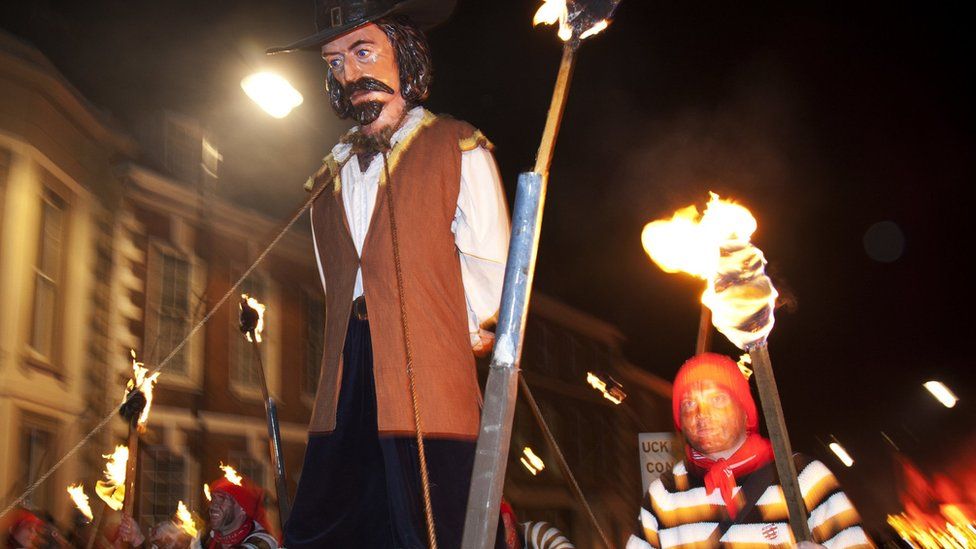Does the Treason Act need updating?
- Published

Treason might not be a charge often associated with modern life.
A search of the Parliament website for the term mostly brings up the Gunpowder Plot of 1605. But Conservative MP Tom Tugendhat and his Labour colleague Khalid Mahmood want the 1351 Treason Act to be brought into the 21st Century.
No-one can be executed for high treason any more - that was formally abolished in 1998 - but people can still technically be sentenced to life in prison, although the Act has not been used since World War Two.
In a report for the think tank Policy Exchange, the MPs have called for the law to be updated in order to recognise "acts of betrayal", such as fighting for IS, as a distinct crime. Mr Mahmood said the law in its current form had become "unworkable".
This comes amid controversy over a government decision not to intervene in the case of two alleged Islamic State members.
Some people argue that other laws, for example terrorism legislation, already cover these cases, however.
What do current laws say?
The Treason Act 1351 was designed to punish people plotting or "imagining" the death of the monarch, "levying war" or "adhering to the King's Enemies".
It has been updated a number of times since then, including in each of the last two centuries. Most recently, the 1998 Crime and Disorder Act formally abolished the death penalty for treason, replacing it with a maximum punishment of life imprisonment.
Nazi propagandist William Joyce was the last person to be tried for treason in the UK in 1945. He was found guilty and executed at the start of the following year.
Could it be updated?
The Law Commission is the statutory body that reviews laws in England and Wales and makes recommendations on whether they need updating.
A spokesman said the Commission intended to review the law on treason in 2008, alongside laws on kidnapping and public nuisance, but the treason element of the project was shelved.
However, the body's position at the time was that it had "ceased to be of contemporary relevance".
"Offences which once served a useful purpose no longer do so, in part because new offences have been developed which are far better suited for tackling the problems that currently afflict society," it said.
It has no current plans to look at the law again.
Why treason?
If acts of violence carried out in the name of a particular group or state are already prosecutable under terror legislation, why update a centuries-old law?
Mr Tugendhat told BBC Reality Check that treason is the only offence currently on the statute books which recognises betrayal of the country as an offence. And bringing it up-to-date would allow it to be used to prosecute those who swear allegiance to a hostile foreign power.
It is currently an offence under the Terrorism Act 2000 to belong, or profess to belong, to a proscribed organisation, including IS.
But he believes the Treason Act could be used in cases of people aiding a "hostile state" that doesn't fall into this category, for example through cyber-attacks.
And the report states: "Between 2006 and 2017, some 193 persons were sentenced to imprisonment for terrorism offences, 80 whose sentences are due to expire by the end of this year."
It adds that if they had been convicted of treason and imprisoned for life, "the UK would be considerably safer".
The Law Commission disagreed when it last looked at the issue.
"In the Middle Ages, England was more often than not at war. It is questionable whether treason offences are required in peacetime," it said, in a document published in 2008, adding that modern offences around rioting and terrorism were better equipped to deal with problems facing current society.
In 2014, Justice Minister Simon Hughes was asked whether the offence of treason was "available for use by prosecuting authorities against UK citizens participating in jihad in the Middle East".
He responded at the time that the offence of treason was outdated, and counter-terrorism powers were enough.